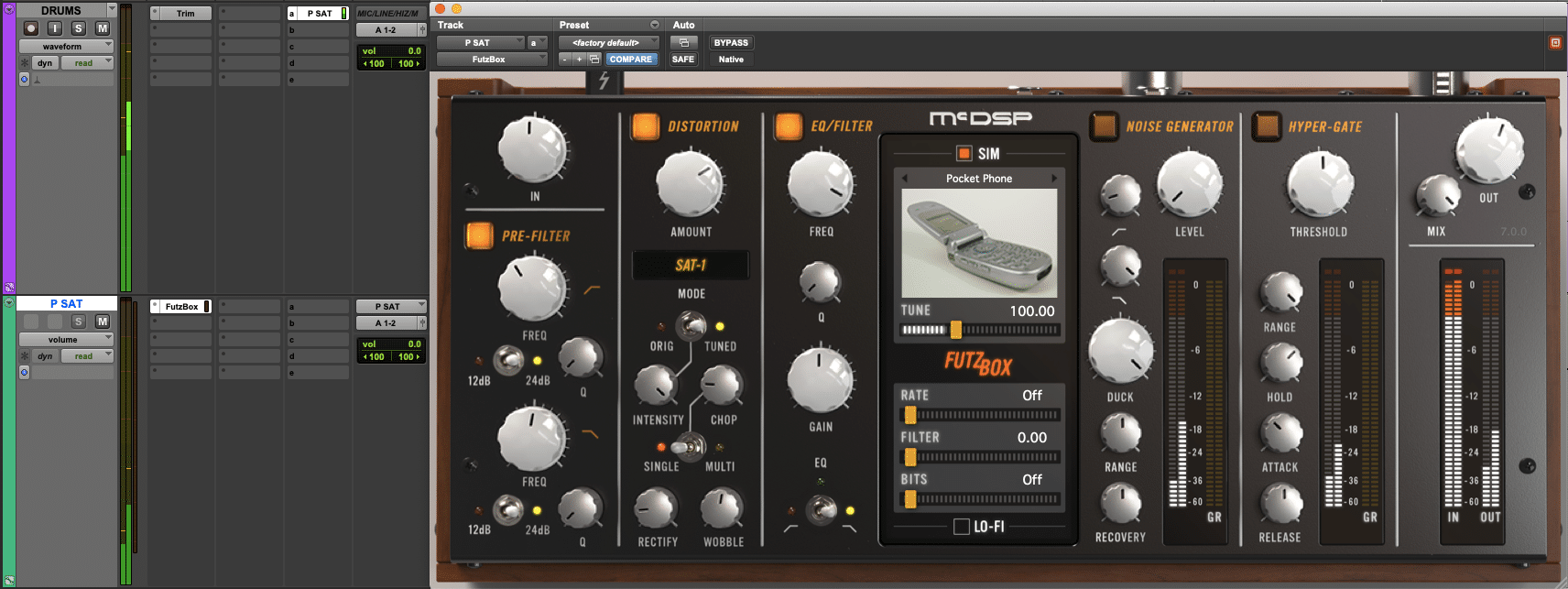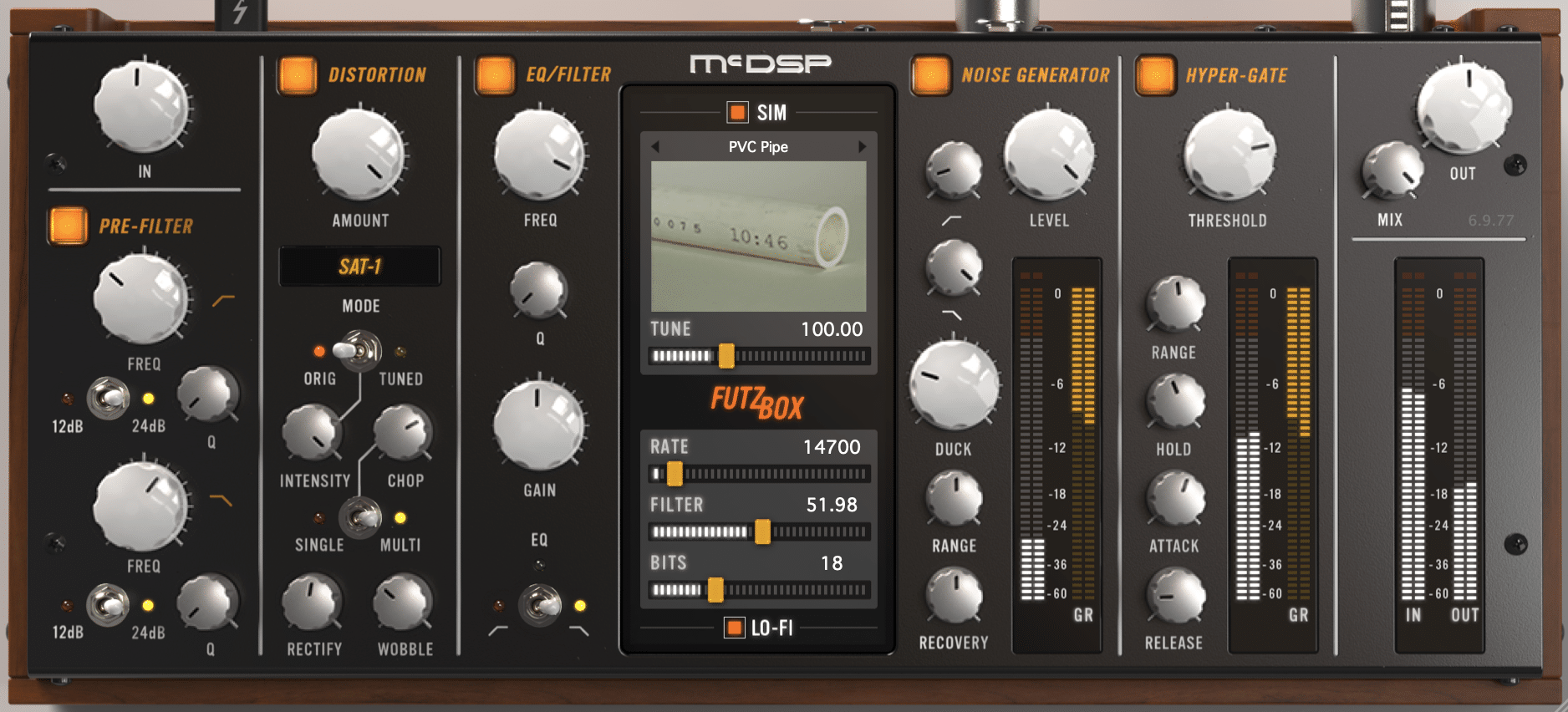Saturation is perhaps one of the most diverse and powerful tools in a music producer’s toolbox. Each saturation plug-in and hardware unit brings its own unique tones to the table and offers a great deal of variety
Want to add more harmonic content to a track? Try a saturation plug-in! Want to thicken up a vocal that sounds a bit thin? Try a saturation plug-in! Want to add just a little bit of character to a sound? Try a saturation plug-in! Want to make a track sound incredibly distorted and overblown? You get the idea.
Since saturation is such a versatile tool, that means it would be perfect for sound design sessions, right? Right! Let’s get into a bit more detail on how you can creatively utilize saturation to come up with interesting sounds.
Parallel saturation can be achieved either by placing a saturation plug-in on an aux/send track or by using the mix control on a saturation plug-in.
It’s a particularly great tool because it gives you the ability to push a saturation plug-in to its limits, all without having to worry about whether your dry vocal, for example, is being negatively impacted by the extreme saturation. You can even filter and EQ the saturated signal if you find that it’s clashing with the raw vocal!
Saturating Drums in Parallel on a Send
Use cases for parallel saturation include subtle effects like thickening up a synth track or balancing a distorted vocal with the original signal. More extreme uses include mixing a bit of white-noise and distortion into a snare drum to give it more bite. Go give it a try!
The McDSP FutzBox Plug-In
The McDSP FutzBox Plug-In
FutzBox includes over 160 SIMs to make your source sound like it’s being run through everything from a phone speaker to a vacuum tube. There is even a Tune control for modifying unique tonal aspects of each SIM.
To get an idea of what FutzBox can do, we’ve included some audio clips of FutzBox being used for parallel saturation below. In order, these examples include: A synth with the chop knob cranked high, an aggressively distorted guitar, and a trap synth!
Note how a parallel distortion effect can be created just by adjusting the FutzBox Mix control to balance the original and distorted signal. Each of these examples utilize Futzbox’s Mix knob.
Want to check out FutzBox for yourself? Try out a free 14-day, fully functional FutzBox trial
here.That’s all we’ve got for today, we hope you learned something new! Be sure to sign up for our newsletter below to stay up to date on all things McDSP. We’ll see you next time!


